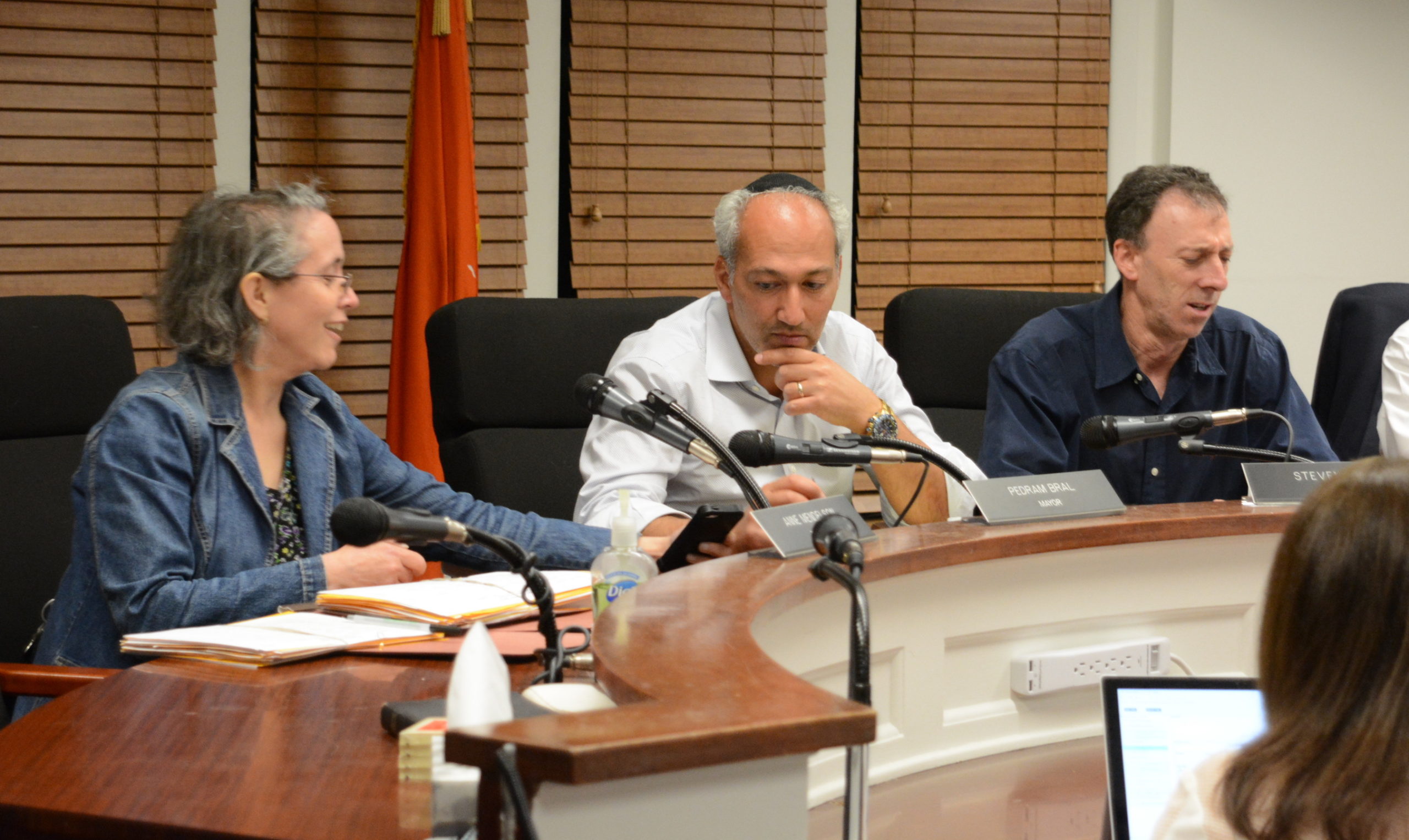Great Neck village trustees passed a permit fee amnesty law on Tuesday night, in a move to encourage anyone who may not have secured a proper permit to come forward.
Before passage of the law, anyone who completed substantial renovation or building without a permit would see permit fees double or triple unless the work was considered so minor as to “amount to an unwarranted penalty” or it was “reasonably necessary” to save life or property.
The law removes penalties until January 2019 for those who come forward to get a proper building permit, so long as they had not been notified of noncompliance with the village code prior to making such an application.
“The purpose of this was for people who have not received any violations or notice of violations to be able to come to the Building Department to ask for a permit and try to legalize their basements, their driveway or annex or whatever they’ve done – if it’s done legally,” Mayor Pedram Bral said.
“We are hopefully going to encourage everybody to show up to get the proper permits to legalize their extensions,” he added.
Joe Gill, the village clerk-treasurer, said that issues regarding people making building improvements without the proper permits came up “from time to time,” but that the village is “realizing that it might be more widespread.”
“We’re looking for compliance, not punishment,” Gill said.
Trustees also framed the law as a safety issue.
“I just want to add that because many people have done a lot of work without permits in the past, there are potential dangerous situations in the village,” Trustee Barton Sobel said.
In unrelated business, trustees increased the scope of a study by VHB analyzing a stretch of Middle Neck Road to potentially propose zoning changes for the area and eventually a master plan for development.
The work was originally slated to cost no more than $10,000. VHB will now be authorized to get up to $100,000 to also conduct a generic environmental impact statement study.
“This study will basically look at the corridor, look at what’s existing and analyze what we can fit in the corridor so that it just works all together,” said Marwa Fawaz, a senior project manager with VHB.
Rebecca Gilliar, a civic activist, raised concerns about why the new village’s master plan would not include assistance from a citizens committee, as was the case with a previous mayor.
“I don’t understand how a company is going to make a master plan for the corridor of the road… without any citizens’ input,” Gilliar said.
Bral replied that a consultant is necessary, times have changed and that it does not mean people cannot contribute.
Village officials also approved Allegra Goldberg of AMSG Construction Management, at a cost not to exceed $5,000, to be the project manager of the construction of a footbridge for Essex Road.
Gill said that the bridge, which would go across a creek just south of Piccadilly Road, was proposed a couple of years ago to connect two parts of the village.
“”You have to walk all the way to Cambridge [Road] to get across… This would allow people to just walk across the bridge and get to the downtown heart,” Gill said.
Trustees also reviewed a proposal for Everfresh at 533 Middle Neck Road to fix its facade and heard a request from representatives of the Butterfly Initiative to make the village more environmentally friendly.
Additionally, the village board decided to hold off on making a final decision regarding previously proposed changes to 429 Middle Neck Road, or the Kol Yisrael Achim Congregation.
The board previously gained site and architectural review power.



